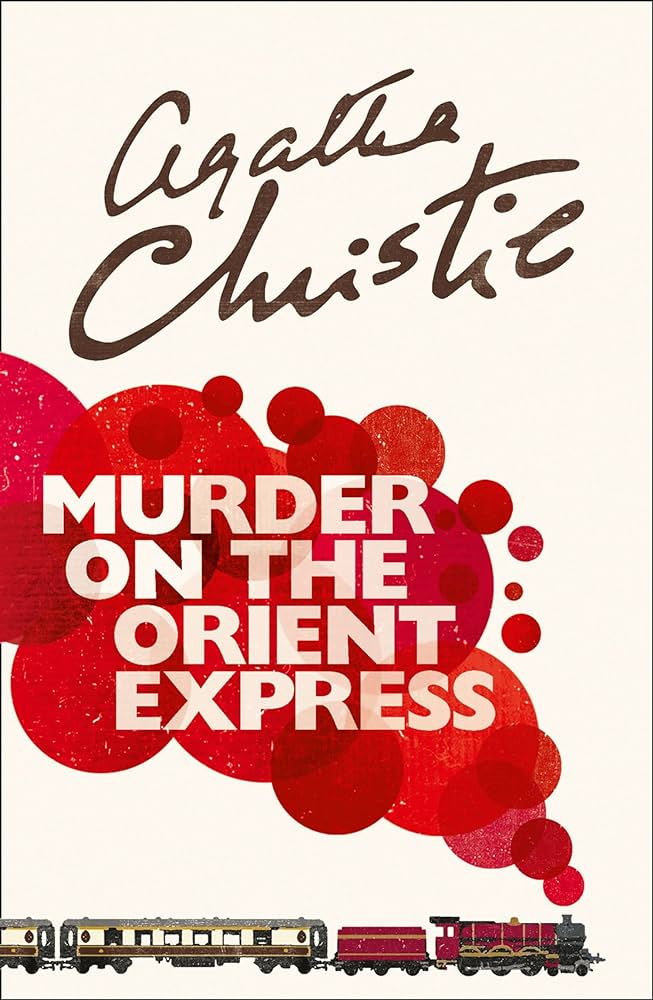Introduction:
“Murder on the Orient Express” by Agatha Christie stands as a timeless classic in the realm of detective fiction. First published in 1934, this masterfully crafted whodunit has captivated readers for generations with its intricate plot, unforgettable characters, and the brilliant mind of the legendary detective Hercule Poirot. In this extensive exploration, we embark on a journey through the luxurious and treacherous world of the Orient Express, dissecting the elements that make Christie’s novel a masterpiece in the mystery genre.
Plot Overview:
The story unfolds against the glamorous backdrop of the Orient Express, a luxurious train journey from Istanbul to Calais. The renowned Belgian detective Hercule Poirot finds himself onboard, unexpectedly thrust into a web of deceit and murder. What begins as an opulent and routine train voyage takes a sinister turn when the wealthy American passenger Ratchett is found dead in his compartment. Poirot, known for his meticulous attention to detail and unparalleled deductive skills, is enlisted to unravel the mystery surrounding the murder.
As Poirot interviews the eclectic group of passengers and examines the evidence, he discovers that each traveler has a motive for wanting Ratchett dead. The investigation takes unexpected turns, leading to a surprising and morally complex resolution that challenges the conventional notions of justice.
Key Themes:
- Justice and Morality: At the heart of “Murder on the Orient Express” lies a compelling exploration of justice and morality. As Poirot unravels the truth, readers are confronted with ethical dilemmas and questions about the nature of right and wrong.
- Isolation and Confinement: The setting of the Orient Express, confined within the narrow space of a train, becomes a metaphor for the characters’ isolation and entrapment. The snowbound train creates a sense of claustrophobia, heightening the tension and emphasizing the inescapable nature of the crime.
- Dual Identities: Many characters in the novel harbor hidden or dual identities, blurring the lines between appearance and reality. The revelation of these hidden facets adds layers of complexity to the narrative, challenging readers to question assumptions about the characters.
- Deception and Betrayal: Deception and betrayal weave through the fabric of the story. Every character has secrets, and the intricate interplay of lies and half-truths keeps readers guessing until the final revelation. Christie’s skill in crafting a plot filled with red herrings showcases her mastery of the genre.
Character Analysis:
- Hercule Poirot: The eccentric and fastidious Belgian detective Hercule Poirot takes center stage in “Murder on the Orient Express.” Poirot’s meticulous approach to solving crimes, his reliance on psychology, and his distinctive mustache make him an iconic figure in detective literature.
- Passengers of the Orient Express: Christie presents readers with a diverse cast of characters, each with their own secrets and motivations. From the composed Princess Dragomiroff to the brash American businessman Ratchett, the passengers contribute to the rich tapestry of the mystery.
- Monsieur Bouc: A friend of Poirot and the director of the Compagnie Internationale des Wagons-Lits, Monsieur Bouc becomes a key ally in Poirot’s investigation. His role adds a layer of camaraderie and support to the detective’s endeavors.
Writing Style:
Agatha Christie’s writing style is characterized by its precision, economy, and clever use of misdirection. Her ability to create vivid descriptions, build suspense, and craft dialogue that reveals character nuances contributes to the immersive quality of the narrative. The pacing is deliberate, allowing readers to savor the unfolding mystery.
Red Herrings and Plot Twists:
Christie’s genius lies in her strategic use of red herrings and plot twists. “Murder on the Orient Express” is a testament to her mastery in leading readers down unexpected paths while maintaining an air of suspense. The twists in the resolution elevate the novel beyond a conventional whodunit, leaving an indelible mark on the genre.
Cinematic and Theatrical Adaptations:
The enduring appeal of “Murder on the Orient Express” is evident in its numerous adaptations for film, television, and the stage. Iconic actors like Albert Finney, David Suchet, and Kenneth Branagh have portrayed Poirot, bringing different interpretations to the character. These adaptations, while introducing the story to new audiences, also attest to the timeless nature of Christie’s narrative.
Legacy and Impact:
“Murder on the Orient Express” has left an indelible impact on the mystery genre, influencing subsequent generations of writers and filmmakers. Its success lies not only in the ingeniously crafted plot but also in its exploration of human nature, morality, and the complexity of justice.
Conclusion:
Agatha Christie’s “Murder on the Orient Express” remains a literary triumph that transcends time. Its enduring popularity can be attributed to the meticulous plotting, compelling characters, and the moral ambiguity that challenges readers to grapple with the complexities of right and wrong. As the Orient Express hurtles through the snow-covered landscapes, Christie invites readers to embark on a journey of deduction, deception, and the timeless allure of a well-crafted mystery. The novel stands as a testament to the enduring genius of Agatha Christie, the undisputed Queen of Crime.
